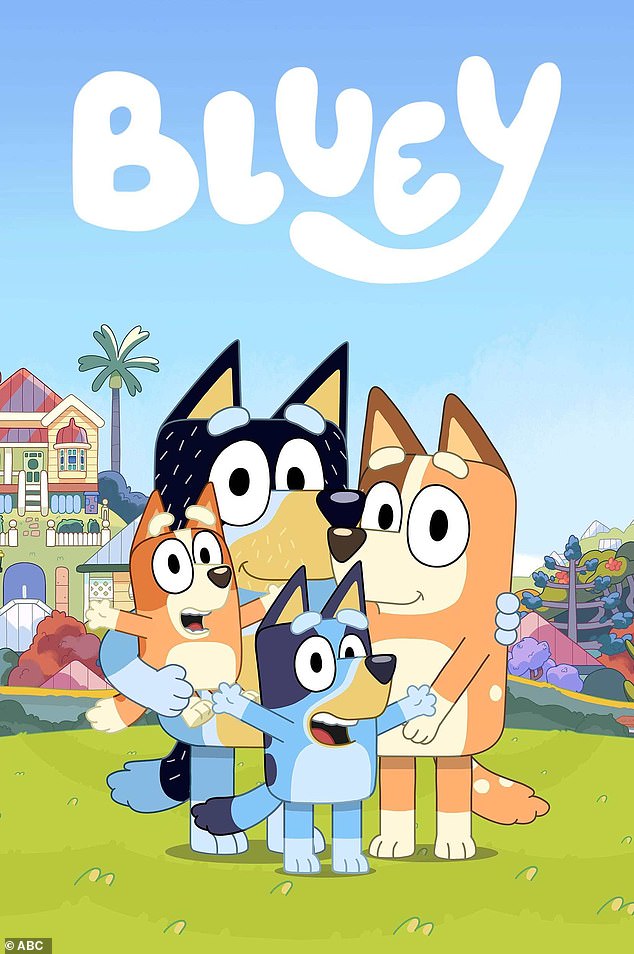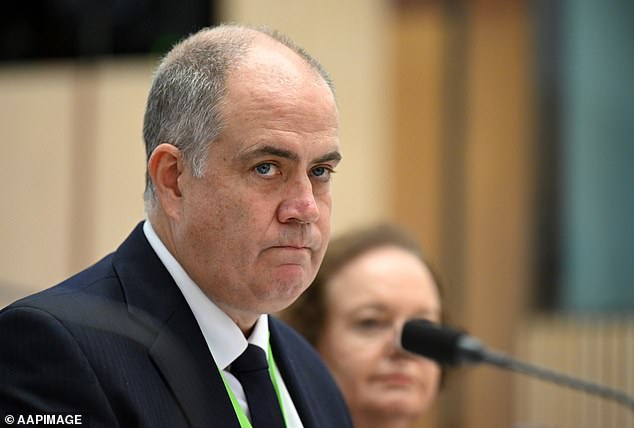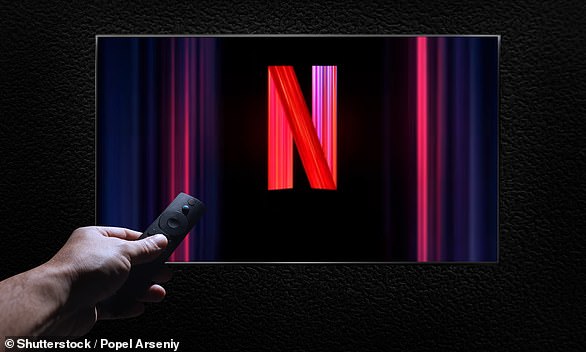Australians are paying more to watch their favorite cartoon cattle dog as tech giants push fans towards paid streaming services instead of free alternatives.
Bluey has taken the world by storm, ranking among the most-watched shows in the United States and surpassing TV staples like Gilmore Girls and Seinfeld.
As a children’s program developed in Queensland and commissioned by the ABC and BBC, it is funded by Australian taxpayers.
But these same benefactors are being charged double for the program because of smart TVs.
Speaking at a parliamentary inquiry into laws relating to free-to-air television, ABC chief executive David Anderson said search functions on smart TVs were prompting Australians to pay for streaming subscriptions when they wanted to watch Bluey.

Australian fans of the TV series Bluey (pictured) are being charged to watch the show free-to-air due to smart TVs.
“On some TVs, searching for Bluey will not take you to ABC iView, where Australian families can enjoy it for free,” he said on Friday.
‘Instead it will take you to a paid service.
“If we want Australians to be able to find Australian content, including local news and children’s programmes, ensuring search recommendations… is vital.”
Free TV Australia technical expert Stephen Clear says the problem could be down to each streaming network’s willingness to share their catalogs with a TV’s search engine.
Broadcasters have blamed television manufacturers for making deals with technology giants such as YouTube or Netflix.
SBS managing director James Taylor said the maker of “Australia’s best-selling connected TV threatened to remove the broadcaster’s app from the TV’s home page unless it agreed to a 15 percent revenue share.” cent and a placement fee.”
“When SBS refused to pay, the manufacturer made good on its threat, making it much more difficult for the public to find the SBS on Demand app,” he said.
“It is frankly outrageous that these huge global technology companies can unilaterally insert themselves as gatekeepers between Australians and their free Australian content – trusted news and information services that have been intentionally developed and supported by decades of public policy.”


ABC CEO David Anderson said search features on devices allow viewers to pay more to watch the show.
The laws discussed in the inquiry would require free TV channels to be given prominence on smart TVs, meaning catch-up services would be prioritized in search functions.
Patrick Delany, head of pay-TV service Foxtel, warned the changes would lead to a “dangerous outcome in the future”.
“I just want to access content that I love or want to search for,” he said.
“When you start legislating to put certain apps ahead in the queue or in search results, you’re not going to get that, you’re going to get a distorted result.”
Netflix policy advisor Carolyn Hough agreed, adding that it was “pretty unfair” to creators involved in making Australian films with the streamer that search results only showed free-to-air TV content.
“We really need to make sure we preserve that flexibility,” he said.
The proposed legislation would also guarantee first rights to major sporting events to be offered to free-to-air broadcasters before they go behind a paywall.
The parliamentary committee also heard from the bosses of Seven, Ten and Nine, and executives from Free TV Australia, including Gregory Hywood, who argued that paid services posed an “existential” problem for Australian culture.
As advertising spending is channeled toward online services like Google and social media, broadcast TV’s share of revenue has declined.
“It’s about news, sports, all the things that make Australia, Australia,” he said.
“There is really only one solution to this problem: government legislation, because there has been a market failure.”
Free-to-air television networks have called for the deadline for prominence laws to come into force to be reduced from 18 months to six months.


